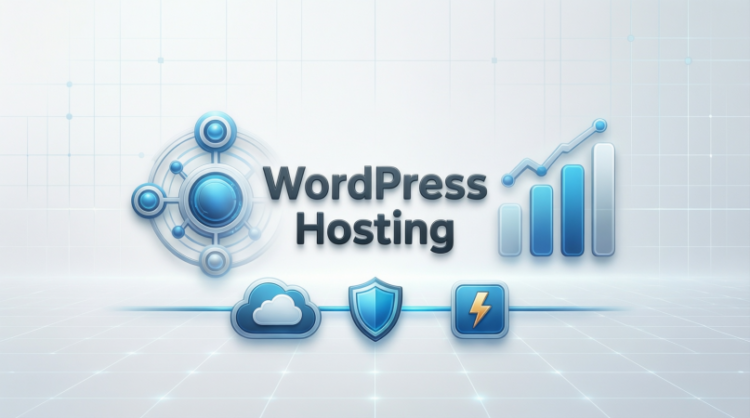
The Benefits of Business Analytics. In today’s fast-paced and data-driven business landscape, having the ability to effectively analyze and interpret data is essential for success. Enter Business Analytics – the practice of using data, statistical and quantitative analysis, and predictive modeling to gain insights and make data-driven decisions. In this article, we will explore the benefits of Business Analytics, including improved decision-making, increased efficiency, identification of new business opportunities, competitive advantage, enhanced risk management, customer insights, and personalization. We will also examine the current state and future of Business Analytics, highlighting its importance in today’s business world.
Introduction to Business Analytics
Businesses have access to more data than ever before. From customer information to sales data, businesses collect a vast amount of information every day. Business analytics is a powerful tool that utilizes this data to inform strategies and improve decision-making. In today’s competitive marketplace, having a deep understanding of your business data can give you a significant advantage over your competitors.
Definition of Business Analytics
Business analytics is the practice of using data, statistical analysis, and computer-based models to gain insight into business performance. This process involves collecting and analyzing data to identify patterns, make predictions, and inform decision-making.
Importance of Business Analytics
The importance of business analytics cannot be overstated. By utilizing data to inform decisions, businesses can reduce risk, increase efficiency, and identify new opportunities. With the help of business analytics, businesses can make informed decisions backed by data, rather than relying on gut feelings or assumptions.
Improved Decision-Making
Data-Driven Decision-Making
The most significant benefit of business analytics is the ability to make data-driven decisions. By analyzing data, businesses can identify trends and patterns that might not be visible otherwise. This insight can guide decision-making and reduce the risk of making poor choices based on assumptions.
Identification of Key Performance Indicators (KPIs)
Business analytics also allows businesses to identify key performance indicators (KPIs). KPIs are metrics used to measure business performance. By identifying and tracking KPIs, businesses can monitor their progress and make informed decisions about resource allocation and strategy.
Real-time Analysis and Reporting
With the help of business analytics tools, businesses can access real-time analysis and reporting. This provides up-to-date information on business performance, allowing businesses to respond quickly to changes in the market or customer behavior.
Increased Efficiency and Productivity
Process Optimization
Business analytics can be used to optimize processes within an organization. By analyzing data, businesses can identify inefficiencies and areas for improvement, leading to increased efficiency and productivity.
Resource Allocation
Business analytics can also help businesses allocate resources more effectively. By identifying where resources are being wasted or underutilized, businesses can adjust their strategy to maximize their effectiveness.
Automation of Tasks
Automation is a growing trend in business, and business analytics can be used to automate repetitive tasks. This saves time and resources while reducing the risk of errors.
Identification of New Business Opportunities
Market and Customer Analysis
Business analytics can be used to analyze market trends and customer behavior. By identifying patterns and trends, businesses can develop strategies to take advantage of new opportunities.
Identification of Trends and Patterns
By analyzing data, businesses can identify trends and patterns that might not be visible otherwise. This insight can guide decision-making and help businesses identify new opportunities.
Identification of Untapped Markets
Business analytics can also help businesses identify untapped markets. By analyzing data, businesses can identify areas where they are underperforming and develop strategies to capture new markets.
Competitive Advantage
In today’s fast-paced business world, gaining a competitive advantage can be the difference between success and failure. Business analytics provides organizations with the ability to benchmark against their competitors, allowing them to see where they stand in relation to their industry peers. By analyzing data on key performance indicators (KPIs) such as revenue, market share, and customer satisfaction, businesses can make informed decisions and adjust their strategies accordingly. Additionally, analytics can optimize pricing strategies by analyzing consumer behavior and finding the sweet spot where pricing meets demand. With real-time insights gained from analytics, businesses can also improve the customer experience, driving loyalty and repeat business.
Enhanced Risk Management
While risk is inherent in any business, analytics can help mitigate it by identifying potential risks early. By analyzing data on business operations, finance, and even social media sentiment, businesses can detect potential risks and create mitigation strategies to reduce their impact. Additionally, analytics can help businesses stay compliant with regulations by providing the necessary data to ensure compliance and avoid costly penalties.
Customer Insights and Personalization
Analytics can provide businesses with valuable insights into customer needs and preferences. By analyzing customer data, businesses can create personalized marketing and sales strategies that target specific customers with the right message at the right time. The result is improved customer retention, increased loyalty, and stronger relationships between businesses and their customers.
Conclusion and Future of Business Analytics
Business analytics has already revolutionized the way businesses operate, providing valuable insights and helping organizations gain an edge over their competitors. The future of analytics promises even more innovation, with advancements in machine learning, artificial intelligence, and predictive analytics. As businesses continue to embrace analytics, the potential for growth and success is virtually limitless. By leveraging the power of data and analytics, businesses can achieve their goals and stay ahead of the competition.In conclusion, Business Analytics is a game-changer for businesses looking to stay ahead in today’s data-driven landscape. By utilizing data to make informed decisions, businesses can improve efficiency, identify new opportunities, gain a competitive edge, and enhance customer experience. As technology evolves, so will the future of Business Analytics, providing even more opportunities for businesses to leverage data to their advantage.
FAQ
What is Business Analytics?
Business Analytics is the practice of using data, statistical and quantitative analysis, and predictive modeling to gain insights and make data-driven decisions. It involves examining data from various sources to identify patterns, trends, and insights that can help businesses make informed decisions.
What are the benefits of Business Analytics for businesses?
Business Analytics can provide several benefits for businesses, including improved decision-making, increased efficiency and productivity, identification of new business opportunities, competitive advantage, enhanced risk management, customer insights and personalization.
How can businesses implement Business Analytics?
Businesses can implement Business Analytics by:
1. Identifying the business problem or opportunity
2. Identifying the data sources needed to address the problem or opportunity
3. Collecting and organizing the data
4. Analyzing the data using statistical and quantitative techniques
5. Developing insights and recommendations based on the analysis
6. Implementing the recommended solutions
7. Continuously monitoring and evaluating the results.
What are some common tools and techniques used in Business Analytics?
Some common tools and techniques used in Business Analytics include data visualization, predictive modeling, statistical analysis, data mining, and machine learning. Businesses can use these tools to identify patterns and trends in data, make predictions about future outcomes, and generate insights to inform decision-making.
Read More :





